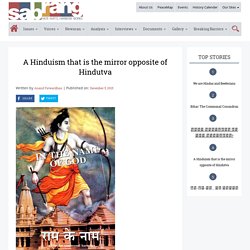

A vulture spreads the false rumor that Hitchens accepted God at the end. Stories of deathbed conversions are always dubious, especially when they are recounted by the faithful, lack corroborating evidence, and involve a famous nonbeliever.

Such was the case of Charles Darwin, an agnostic subject to widespread (and false) conversion stories. Creationists still propagate the lie that Darwin embraced God on his deathbed. And such is now the case with the late Christopher Hitchens. A “friend” of Hitchens, one Larry Alex Taunton, is profiting from rumors—rumors he revived—that Hitchens might have been turning to God after learning he had terminal cancer. Taunton is the founder of the Fixed Point Foundation, whose website states this: The mission of Fixed Point Foundation is to defend and proclaim the Gospel in the secular marketplace and equip others to do the same.
On April 12, Taunton released a book called The Faith of Christopher Hitchens: The Restless Soul of the World’s Most Famous Atheist. (Note too that Oppenheimer has previously gone after New Atheism.) A Hinduism that is the mirror opposite of Hindutva. The making of Ram Ke Naam In 1984 after Sikh bodyguards assassinated India’s Prime Minister Indira Gandhi, a revenge pogrom took the lives of over 3000 Sikhs on the streets of Delhi.

The members of the then ruling party - Congress had led most of the killer mobs; the RSS and BJP leaders led others. These overlooked facts may have been pushed under the carpet by subsequent governments, but have been widely documented and recorded by newspaper headlines and documentarians of the day. It was this Sikh massacre that set me on the road to fight communalism with my camera. Conversion via Twitter. On December 1, 2009, to commemorate World AIDS Day, Twitter announced a promotion: if users employed the hashtag #red, their tweets would appear highlighted in red.

Megan Phelps-Roper, a twenty-three-year-old legal assistant, seized the opportunity. “Thank God for AIDS!” She tweeted that morning. “You won’t repent of your rebellion that brought His wrath on you in this incurable scourge, so expect more & worse! #red.” As a member of the Westboro Baptist Church, in Topeka, Kansas, Phelps-Roper believed that AIDS was a curse sent by God. Westboro had long used the Internet to spread its message. In August, 2009, Phelps-Roper, under the handle @meganphelps, posted a celebratory tweet when Ted Kennedy died (“He defied God at every turn, teaching rebellion against His laws. Religion in America: U.S. Religious Data, Demographics and Statistics. Islamic State Files Show Structure of Islamist Terror Group. Aloof.

Polite. Cajoling. Why Christianity Failed In India. If you have been following Indian mass media or social media in the last few months, you couldn’t have escaped the narrative being spun by the Hindutva right-wing.

It goes something like this: “Christianity is posing a growing and serious demographic threat to Hinduism by converting large numbers of Hindus through aggressive proselytising. This effort is heavily funded by Christian organisations in the West that see India as being ripe for large-scale conversions. Since proselytising and conversions are not part of Hindu tradition, or that of any religion that originated in India, the playing field is tilted against Hinduism, and this is causing serious societal friction. This sometimes leads to spontaneous and violent reactions.”
There are about four individual assertions in there, so let us take them one by one, put them to the test of data and historical evidence, and see which ones hold up, and which ones do not. What ISIS Really Wants. What is the Islamic State?

Where did it come from, and what are its intentions? The simplicity of these questions can be deceiving, and few Western leaders seem to know the answers. Terry Pratchett had the ability to make everyone feel at home in Discworld. I once had to buy a suitcase on a book tour.

It had four wheels and a mind of its own. I went right, it went left. I went straight on, it veered in random directions. And because I was in America and Homeland Security searched it every time I flew, whenever I opened it, my clothes were configured differently. Inevitably, I christened it The Luggage, after Terry Pratchett’s sapient pearwood invention, an object generally announced by the patter of its many feet, and characterised by its ever-changing and apparently random contents. And that for me is the key thing about Pratchett’s fantasy. I love the Discworld novels for so many reasons. And then there’s the breathtaking inventiveness of it all. Sometimes it spills over into silliness, but even the silliness is entertaining. The other aspect of his work I enjoyed was his ability to write with warmth without tipping over into sentimentality.
His Alzheimer’s was the cruellest possible blow to a mind so inventive, so rich and so funny.